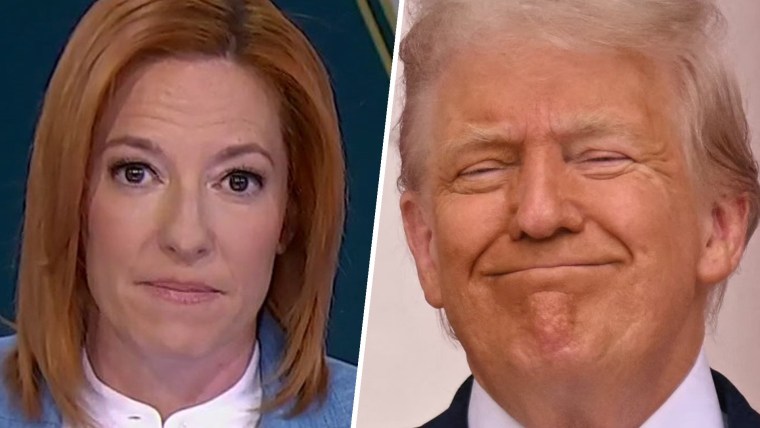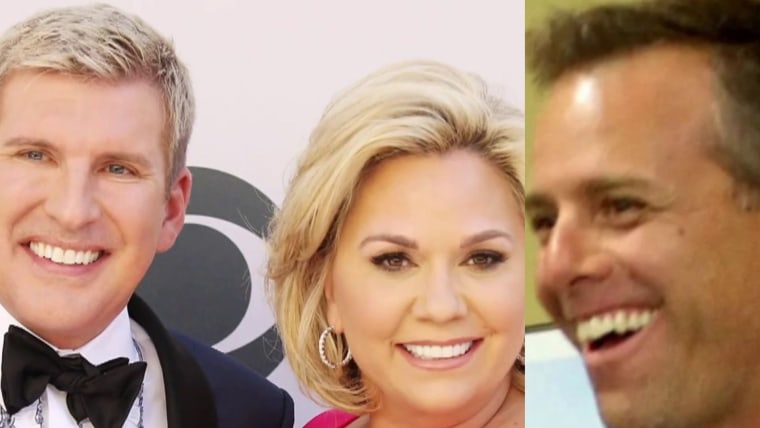On Monday, President Trump pardoned former Culpeper County Sheriff Scott Jenkins before the start of his 10-year federal prison sentence for bribery and corruption. The Republican sheriff was convicted by a jury who found that he received envelopes stuffed with cash and checks totaling more than $100,000 from wealthy citizens in return for deputy badges. The evidence against Jenkins included undercover photos and videos of the sheriff accepting the payments. It was what prosecutors and agents call a slam-dunk case — until the president intervened.
Under Trump, corruption isn’t what it used to be. It used to be a shameful act conducted in shadowy backrooms or darkened corner tables. When a disgraced official was caught and convicted, they often slinked off to serve their sentence in silence and humiliation. At least one state, Pennsylvania, even added plaques under lawmakers’ official portraits in the state Capitol with details of their corruption convictions.
Now, instead of begging for forgiveness from the public, the guilty are unashamedly pleading for a pardon from the president.
The president’s decision to pardon the sheriff was as boldly public as the sheriff’s lobbying for the pardon.
Jenkins publicly and repeatedly asserted he had been a victim of a weaponized Biden Justice Department. Despite the fact that six people who paid Jenkins bribes pleaded guilty and cooperated, the sheriff maintained his innocence and claimed there was no connection between the payment and his issuance of deputy badges. After learning of his pardon, on Tuesday Jenkins appeared on far-right former Trump adviser Steve Bannon’s "WarRoom" show, where he thanked God for the president’s pardon.
The head of a law enforcement agency is undeserving of a pardon when he betrays his badge, but not in Trump’s eyes. The president’s decision to pardon the sheriff was as boldly public as the sheriff’s lobbying for the pardon. Historically, many pardons have been issued quietly, often as a president was leaving office. As legal expert Kermit Roosevelt noted, “Because pardons can be politically embarrassing or costly, presidents often give them at the end of their terms.” Not anymore. The president trumpeted the pardon in a Truth Social post, proclaiming, “Sheriff Scott Jenkins, his wife Patricia, and their family have been dragged through HELL.”
The sheriff’s case isn’t a one-off. Earlier this year, Trump pardoned Paul Walczak, a former nursing home company executive who pleaded guilty in 2024 to tax crimes. You read that right: Walczak told the court he was guilty. Yet while her son’s pardon decision was pending, Walczak's mother received an invitation to Mar-a-Lago for a $1-million-a-plate fundraiser with a promise of a personal meeting with the president. She attended the dinner and, three weeks later, Trump pardoned her son.

This week we also learned of yet another high-profile pardon. Reality TV stars Todd and Julie Chrisley, of the show “Chrisley Knows Best,” have been serving prison time for defrauding banks of over $36 million and evading taxes for three years, all while earning millions from their TV show. Like the sheriff, the Chrisleys publicly petitioned the president for a pardon. Their daughter Savannah, who is a Trump supporter and spoke at the Republican National Convention, visited the White House to request a pardon for her parents. On Tuesday, Trump told Savannah and her sibling Grayson that he will be granting that request.
It’s not only the lobbying for pardons and Trump’s issuance of them that are far more brazen now. More and more frequently, the underlying act of betraying the public’s trust is happening in plain sight. We need look no further than Trump himself, who is earning millions of dollars through his crypto company with promises of presidential access for the biggest spenders.
At least for those with money or political favor, there may ultimately be no consequences.
On May 22, Trump held a private dinner at his Sterling, Virginia, country club for buyers of his own meme coin, $TRUMP. The exclusive soiree, with over half of its attendees likely from abroad, raked in $148 million for the Trump family crypto platform. One China-born attendee, Justin Sun, said he purchased $18.5 million of $TRUMP — which would make him the largest holder of the token. Sun said he was “grateful for the invitation” to the dinner. Perhaps he is also grateful that in February the Securities and Exchange Commission paused an ongoing fraud case against Sun and his company, the Tron Foundation.
Vincent Liu, chief investment officer of Taiwan-based crypto firm Kronos Research, hoped the dinner would allow him to hobnob with other VIPs and even maybe lead to a meeting with the president. “That kind of access is rare, and it represents how digital assets are entering the mainstream,” Liu said. I’d say it represents how corruption is being mainstreamed.
In my 25 years with the FBI, including leading large, complex corruption cases, I observed two rationales that corrupt individuals told themselves as they committed their crimes. The first was something like, “Everyone is doing it.” The second was essentially, “I’m not going to face any consequences.” The president is doing his best to validate both justifications. At least for those with money or political favor, there may ultimately be no consequences. And, with Trump himself granting access for cash, and pardons for personal or political reasons, the perception that everyone is doing it has never been more real.

